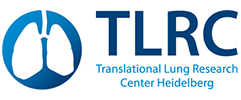TLRC scientists are engaged in multiple research projects in different areas of pulmonary research within the German Center for Lung Research (DZL). Further, TLRC investigators are involved in a number of additional national and international research networks and collaborations. For further information on a selection of collaborative projects please follow the links:
The German COPD and Systemic Consequences-Comorbidities Network (COSYCONET) is part of the competence network ASCONET (AsCoNet), which was initiated in 2009 and is funded by the German Federal Ministry of Education and Research (BMBF). The long term goal of this multicentre-initiative has been the development of novel strategies for prevention, diagnosis and therapy of Asthma and Chronic Obstructive Pulmonary Disease (COPD). After the successful completion of the first funding period, seven subprojects related to the national COPD-cohort were continued during a second funding period from 2012-2015. Since 2016 the COSYCONET project, which also includes non-DZL research institutions, is being continued as a research activity integral to the DZL disease area COPD. TLRC scientists of the Department of Diagnostic and Interventional Radiology (DIR) at Heidelberg University Hospital, under the leadership of Prof. Hans-Ulrich Kauczor, are responsible for the subprojects “Imaging Bank” and “Functional Imaging”.
The Imaging Bank was established during the first funding period to collect, store and analyze retrospective CT Data from COPD-patients recruited for the COSYCONET cohort. During the second funding period (2012-2015), the Imaging Bank was expanded to include prospective MRI and CT data from a subcohort of 6oo patients and is now integreated into the DZL Plattform Imaging. The Imaging Bank provides an excellent resource for cooperative projects between the German Center for Lung Research (DZL) and COSYCONET.
The Registry Investigating Significant Health Trends in Idiopathic Pulmonary Fibrosis (INSIGHTS-IPF; NCT01695408) is one of the largest IPF registries. It prospectively and comprehensively assesses the characteristics, diagnostic procedures, treatment patterns, quality of life and long-term outcomes of patients with IPF under clinical practice conditions in Germany.
The Prinicpal Investigator is Professor Dr. med. Jürgen Behr (Medizinischen Klinik und Poliklinik V Klinikum der Ludwig-Maximilians-Universität München). The Thoraxklinik Heidelberg, under the leadership of Professor Dr. med. Michael Kreuter, is one of the recruiting centers.
The Registry for Exploring Clinical and Epidemiological Characteristics of Interstitial Lung Diseases (EXCITING-ILD;NCT02645968) is a multicentre, noninterventional, prospective, and observational registry for interstitial lung diseases (ILD) that collects comprehensive and validated data from healthcare institutions on the incidence, prevalence, characteristics, management, and outcomes regarding all ILD presentations in the real-world setting including demographic data, disease-related data such as ILD subtype, treatments, diagnostic procedures (e.g., HRCT, surgical lung biopsy), risk factors (e.g., familial ILD), significant comorbidities, ILD managements, and disease outcomes as well as healthcare resource consumption.
In addition to supporting cutting edge research into ILD, the new ILD register aims to fill current gaps in knowledge about epidemiology, health economics and existing clinical practices for ILD patients. The registry data will further improve our knowledge of ILD subtypes in Germany and most importantly contribute to a much improved clinical guideline and prognosis of ILD patients in the long term. The DZL-initiated registry is supported by a number of German Pulmonary Research Associations (BdP, DGP, WATL, ILF, Helmholtz Zentrum), Hospital Pulmonary and Critical Care Departments, as well as an ILD patient support group.
Prinicipal Investigator: Prof. Dr. med. Michael Kreuter, Center for Interstitial and Rare Lung Diseases, Department of Pneumology and Respiratory Medicine, Thoraxklinik, University Hospital Heidelberg
Recruiting Centers:NCT02645968
Scientists at the German Center for Lung Research (DZL) investigate the impact of e-cigarette vapor on lung health. This interdisciplinary approach combines various projects of all five sites. The project is financed by the prize money of the International Balzan Prize Foundation and additional DZL funds. The DZL was awarded the Balzan Prize in November 2019 for its influential work in the field of pathophysiology of respiration.
Subproject German National Cohort (2021 – 2023):
1. Assessment of the association between e-cigarette use and respiratory status within the population-based German National Cohort (GNC, NAKO Gesundheitsstudie).
2. Evaluation of the structural alterations in the cardiorespiratory unit associated with e-cigarette use based on whole-body magnetic resonance imaging (MRI) scans within the GNC and their relationship with respiratory function (TLRC - Heidelberg).
SOLACE, "Strengthening the Screening of Lung Cancer in Europe," is a pioneering EU4Health project that aims to improve early lung cancer detection. With the help of EU funding, the project seeks to develop practice-oriented guidelines for lung cancer screening covering all the steps of the lung screening that will also reach social groups that are currently underrepresented. In particular, SOLACE will support the implementation and optimisation of low-dose CT (LDCT) screening programmes in cooperation with all key stakeholders in order to tailor screening approaches to national or regional needs.
In Heidelberg, Professor Dr. Hans-Ulrich Kauczor and his team from the Department of Diagnostic and Interventional Radiology at Heidelberg University Hospital (UKHD) and Translational Lung Research Center Heidelberg (TLRC) are leading the three-year program.
“SOLACE will provide a comprehensive guideline for initiating lung cancer screening programmes with state-of-the-art quality and high participation rates. Typical mistakes can then be avoided, and life expectancy increased,” says Hans-Ulrich Kauczor, the SOLACE project Scientific Coordinator.
SOLACE Website: https://europeanlung.org/solace/
Further information: https://health.ec.europa.eu/non-communicable-diseases/cancer/europes-beating-cancer-plan-eu4health-financed-projects/projects/solace_en

